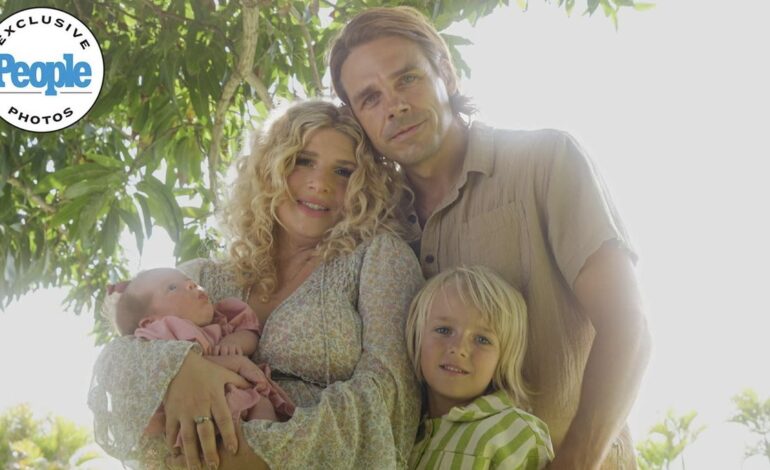Inside Kate Albrecht’s Postpartum Eclampsia Crisis and Coma Explained

Objective reporting, insightful analysis, let’s begin.
Kate Albrecht and her husband Joey Zehr, the creative duo behind the Mr. Kate YouTube channel, endured a harrowing medical emergency two weeks after giving birth to their daughter Mars on May 22. The couple, already parents to six-year-old son Moon, opted for a home natural birth in Hawaii, believing recovery would be smoother compared to Kate’s previous cesarean delivery. Instead, what followed was a rare and life-threatening postpartum complication.
According to an interview published by People Magazine on July 18, Kate, 43, felt inexplicably exhausted and unable to recover despite repeated medical clearances. “I was so tired and so sore,” she recalled. “I felt like, ‘Wait, this is supposed to be easier. I’m supposed to recover from a natural childbirth easier than a surgery,’ but I was bedridden.” Concern grew when she became mentally clouded during a visit to a friend’s house. That afternoon, Kate’s memory abruptly ended as fatigue morphed into unconsciousness.
Zehr, also 43, arrived to find his wife unresponsive with bleeding from her mouth. Moments later, she began seizing in the guest room. By sheer luck, a film crew was shooting nearby and a medic on set suspected eclampsia—defined by Yale Medicine as seizures in a pregnant or postpartum woman that can occur up to six weeks after delivery. This rare condition develops from untreated preeclampsia, marked by high blood pressure and organ stress during or after pregnancy.
Kate experienced a second seizure en route to the hospital, prompting emergency physicians to intubate her and induce a medical coma. Joey remained by her side as doctors performed a series of tests. Miraculously, Kate regained consciousness the next morning. She spent a day in the intensive care unit before being transferred back to the labor and delivery unit and ultimately returning home with her family.
Reflecting on their ordeal, the couple stressed the importance of awareness. “We knew so much information,” Zehr said. “Yet, we had no idea that two weeks after giving birth, we should be watching for preeclampsia, eclampsia.” Their experience underscores a broader gap in postpartum education, where warning signs of hypertensive disorders often go unnoticed until emergencies arise.
Now at six weeks postpartum, Kate reports steady improvement. “My family is okay. They’re thriving,” she told People. “My baby’s thriving. She’s fine, and I’m good and getting better every day.” Their story serves as a vivid reminder of how quickly postpartum complications can surface, even after seemingly smooth births.
That concludes our deep dive into this critical health scare. Stay informed, stay vigilant, and keep following for further insights.
Sources: Celebrity Storm and People Magazine, Yale Medicine
Attribution: Creative Commons Licensed




